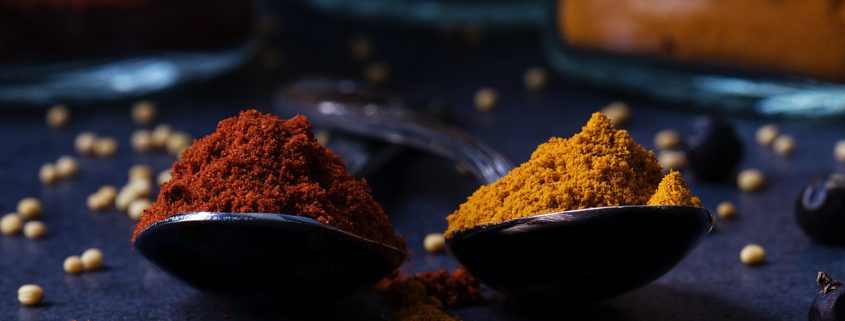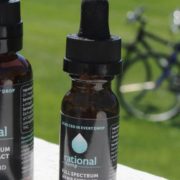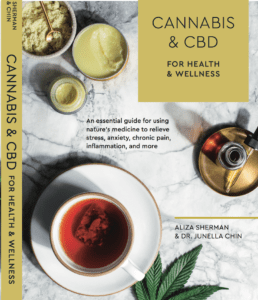What Else Is In CBD Oils? Turmeric? Vanilla?
When you buy an ingestible CBD oil, you may be getting more than a cannabinoid in a carrier oil.
What else is in CBD Oils?
Buying CBD products can be confusing. Without a regulated industry, CBD can be manufactured in a myriad of ways, and the quality as well as the amount of CBD can vary. When shopping for CBD, particularly any form you ingest, we always recommend that you check the ingredients list on the packaging to understand what it contains. Additionally, always review the product test results, if they exist. And if they don’t, consider purchasing a different brand.
Some CBD oils are solely CBD in a carrier oil like MCT oil while others contain added ingredients. Let’s explore some of the ingredients you might find alongside your CBD.
Adding Flavor
Typically, a hemp-derived full-spectrum (with 0.3% THC or less) or broad-spectrum (with THC removed) CBD extract will have an earthy, grassy, and sometimes bitter taste. The pungent flavor comes from the dominant terpenes and flavonoids in all parts of the hemp plant – the leaves, stems, and flowers.
The way CBD oil tastes can be part of your overall experience when you consume it. Not everyone likes the taste of the hemp plant. The natural taste of unaltered CBD oil can be a preference. Other herbs, spices, or essential oils are often added to modify the taste. For example, common essential oils used with CBD include peppermint, orange, lemon, or vanilla.
Boosting Your CBD
Flavor is not the only reason essential oils, herbs, or spices might be added to CBD oils. Some of these natural additives have healing properties of their own. Peppermint can be soothing to the gut. Orange can lift your mood and soothe anxiety. Both orange and lemon contain the terpene limonene that can have anti-inflammatory properties. Vanilla contains the chemical compound vanillin that can have antioxidant and analgesic properties.
CBD has been found to have a number of potential therapeutic benefits including reducing pain, inflammation, nausea, seizures, and anxiety, as well as aiding sleep and helping to regulate the sleep and wake cycles. CBD is also considered to be neuroprotective meaning it can protect and potentially help to heal the brain.
Combining other natural and organic ingredients with CBD can fortify or complement the positive effects of this popular cannabinoid. Let’s take a look at how a few specific ingredients might enhance your CBD.
Vanilla
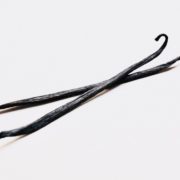 Vanilla is a spice that comes from orchids and contains a compound called vanillin that has been used for centuries for its anti-inflammatory properties. Traditional healing methods have used vanilla particularly for the gastrointestinal tract, as well as for fever, spasms, painful periods, and blood clotting. Vanillin has shown analgesic effects on mice, neuroprotective qualities, and anti-depressant effects that are possibly due to its antioxidant properties although further research is needed. Several studies showed vanillin had calming effects on rats. In humans, studies have shown that the smell of vanilla alone can be calming.
Vanilla is a spice that comes from orchids and contains a compound called vanillin that has been used for centuries for its anti-inflammatory properties. Traditional healing methods have used vanilla particularly for the gastrointestinal tract, as well as for fever, spasms, painful periods, and blood clotting. Vanillin has shown analgesic effects on mice, neuroprotective qualities, and anti-depressant effects that are possibly due to its antioxidant properties although further research is needed. Several studies showed vanillin had calming effects on rats. In humans, studies have shown that the smell of vanilla alone can be calming.
With these potential benefits of vanillin, adding vanilla to CBD oil could contribute to not only a pleasant flavor and smell but to the anti-inflammatory and anti-anxiety features of CBD.
Turmeric
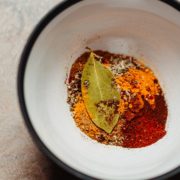 Turmeric is a spice derived from the roots of a flowering plant that is part of the ginger family. Turmeric has a long history of use as an herbal remedy, dating back almost 4000 years as part of the practice of Ayurveda in India. An active ingredient in turmeric is curcumin, a powerful “micronutrient” with antioxidant and anti-inflammatory properties. Studies have shown curcumin to help with arthritis, heart health, and anxiety, among other benefits.
Turmeric is a spice derived from the roots of a flowering plant that is part of the ginger family. Turmeric has a long history of use as an herbal remedy, dating back almost 4000 years as part of the practice of Ayurveda in India. An active ingredient in turmeric is curcumin, a powerful “micronutrient” with antioxidant and anti-inflammatory properties. Studies have shown curcumin to help with arthritis, heart health, and anxiety, among other benefits.
Like vanillin, curcumin has been studied as a treatment for nervous system disorders including depression, and has demonstrated some neuroprotective qualities as well. Curcumin has also been found to interact with the CB1 receptor in the Endocannabinoid System (ECS). CBD interacts with both the CB1 and CB2 ECS receptors so there are some complementary features between CBD and curcumin.
On its own, curcumin is not as bioavailable as it is when black pepper, containing pepperine, is added. Pepper helps the body absorb more of the beneficial features of turmeric.
Knowing the Source
We recommend knowing where and how your hemp is grown and extracted as well as encourage you to seek out CBD products that have been third-party tested for purity. Test results can also tell you if the CBD product you’re purchasing has the amount of CBD listed on the label.
When it comes to the added ingredients in CBD products, make sure you know what they are and look for naturally grown and organic compounds whenever you can. A turmeric CBD oil with added herbs, spices, and essential oils can be a pleasing olfactory and taste experience as well as a more effective product producing enhanced effects.
SOME RESOURCES
Cannabis and CBD for Health and Wellness
Vanilla Potential Health Benefits
Evaluation of the antidepressant activity of vanillin in mice
Curcumin: A Review of Its’ Effects on Human Health
An Overview of Curcumin in Neurological Disorders
The CB₁ receptor-mediated endocannabinoid signaling and NGF: the novel targets of curcumi
This post was brought to you by Mana Artisanal Botanicals
Mana Artisan Botanics™ is Hawaii’s premier wellness-driven hemp company. We offer artisanal, whole-plant hemp extracts infused with Hawaiian botanicals—nature’s mana. Always isolate-free. Always pure. Mana Artisan Botanics donates a percentage of every product purchase to fund the collection of 10200 lbs of low-value PP plastic waste from oceans and landfills every year.

